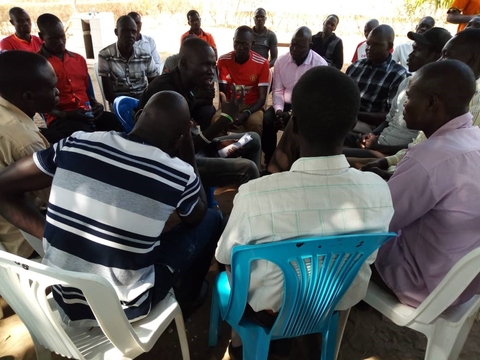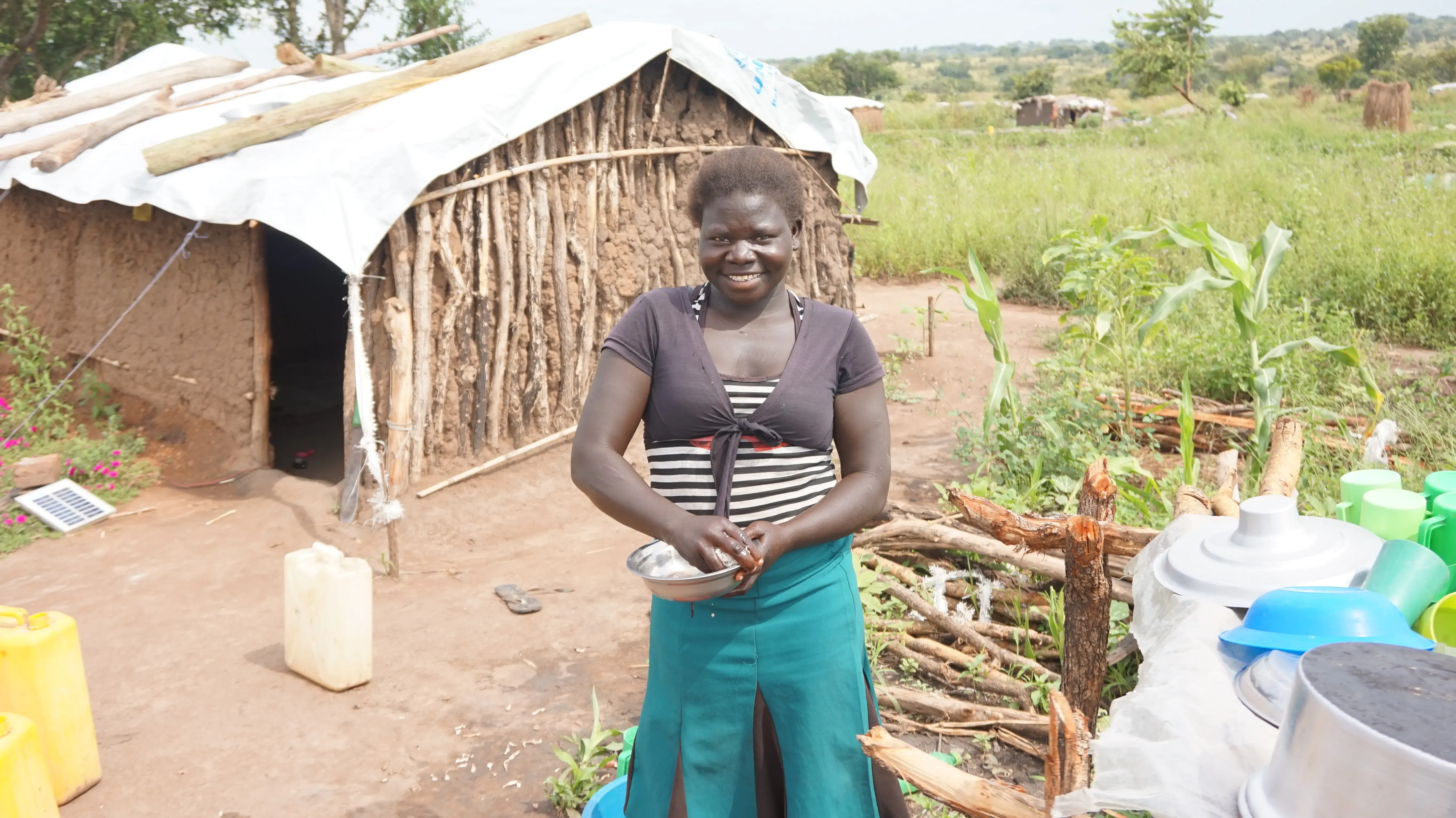“I have learnt a lot about men and gender violence in this training. I feel am ready to meet other young men like me, so we can talk about issues concerning our families and communities,” says Ayii Daniel David, a South Sudanese refugee living in Alere settlement in Adjumani district.
Ayii is one of the 35 male participants from Arinyapi, Pacara and Okusijoni sub-counties and Alere refugee settlement in Adjumani district, who took part in the second cohort of a four -day training of Male Action Groups (MAGs) recently organized by CARE International, an implementing partner for UNFPA’s Women, Adolescents and Youth (WAY) Empowerment and Rights Programme.
Funded by the Ministry of Foreign Affairs of Denmark through the UNFPA in Uganda, the five- year programme was launched in 2018 to enhance women’s and young people’s access and utilization of quality Sexual Reproductive Health and Rights (SRHR) and Gender Based Violence (GBV) services in eight districts in Northern Uganda and West Nile regions.
“I am a youth representative in the Refugee Welfare Committee of Alere settlement were I live. In fact, the issues around early marriage, school drop outs and domestic violence are so prevalent”, says Ayii while committing to use his position as a youth leader to influence young people to take action and end early marriages among the refugee communities.
Male engagement

the MAGS training. PHOTO: UNFPA/Patricia Nangiro.
During the training, most participants said it was their first time to participate in a men-only training where they had an opportunity to discuss issues around gender and GBV prevention. Topics discussed included how to break gender stereotypes that dictate how society expects men and women to behave and present themselves in the communities and at home.
At the end of the training, it was evident that bringing young men like Ayii on board through trainings and mentorship does not only improve their knowledge of reproductive health and rights, but also to rally their support and action as gate keepers in community transformation: “For us MAGs, to effectively mobilize other men and boys, change starts with us; then others see and emulate,” said one of the participants.
A recent bi-annual review of the health sector in Adjumani district showed that male involvement in Sexual and Reproductive Health issues remains low (at 54%), thus limiting access to services like family planning. The engagement of men and boys from both host communities and refugees is therefore one of the key strategies that the WAY Programme has adapted to broaden the conversation to include issues such as prevention of gender based violence, maternal health, teenage pregnancy and supporting young people to achieve their full potentials and live their dreams.
Male engagement has also proved essential in addressing gender norms through health programming in order to improve health and well-being within communities and strengthen support for women and girls access to sexual and reproductive health services.
About Male Action Groups
Male Action Groups are part of community-based activism networks formed to raise awareness on positive fatherhood and educating community members about healthier and more equitable behaviors for men and women.
Under WAY Programme, ten MAGs (consisting of members from both host and refugee communities) have been constituted in Adjumani district as part of a wider strategy to achieve gender equality and improve sexual reproductive health outcomes.
Through a community participation approach, individuals are identified by community members and leaders based on criteria such as; those who keep their children in school, those seen to be responsible members of society, involved in supporting families, community advocacy, including even those known to be violent.
- Story by Patricia Nangiro




